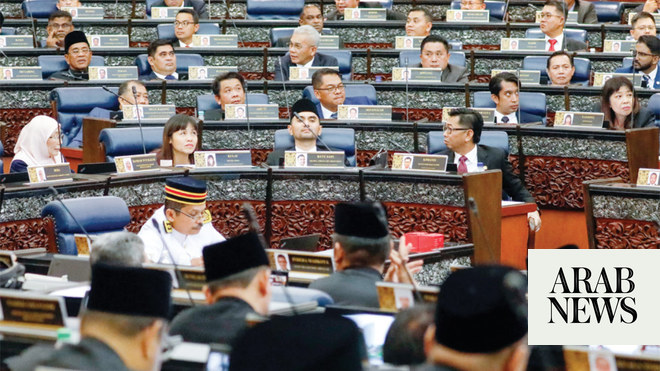
Sexual violence against women sparks protests; 1,000 cases of rape reported
DHAKA: Bangladesh on Monday approved the death penalty for rapists amid a spike in sexual violence against women, with more than 1,000 cases of rape reported between January and September of this year.
The government approved a change in the law during a weekly Cabinet meeting chaired by Prime Minister Sheikh Hasina. It followed a week of protests and nationwide anger.
Cabinet Secretary Khandker Anwarul Islam told reporters that parliament would pass the law as soon as it resumed sessions next month.
Law Minister Anisul Huq welcomed the move and vowed to expedite legal proceedings in all registered rape cases.
“We believe in law and order, and the government will try to complete the legal proceedings of the rape cases as soon as possible,” he told Arab News.
There has been increased anger about sexual violence against women, with people defying the pandemic and taking to the streets to demand capital punishment for the rapists and swift justice for their victims.
The protests were triggered by two incidents of gang rape in the country’s Noakhali and Sylhet districts.
In the first case, on Sept. 2, the victim was attacked at her home. The perpetrators filmed the assault and shared it on social media. There have been at least eight arrests in Noakhali so far.
On Sept. 25, a woman who was with her husband at a college campus in Sylhet city was abducted and gang raped in a dormitory. Police arrested six people, who are reported to be student leaders in the ruling Awami League (AL) party headed by Hasina.
According to data from a local human rights organisation, Ain O Salish Kendro, more than 1,000 rape cases were registered between January and September this year.
The AL’s second-in-command and government minister, Obaidul Quader, said that Hasina had initiated the decision to impose capital punishment due to public demand.
BACKGROUND
On Sept. 25, a woman who was with her husband at a college campus in Sylhet city was abducted and gang raped in a dormitory.
“It has become a people’s demand,” he told Arab News. “The government is firmly committed to ensure justice for the victims.”
He said that while there were some risks involved in introducing capital punishment, there was “no other alternative” considering the growing sexual violence against women.
The Cabinet’s decision has, however, failed to appease protesters who are pushing for “proper implementation” of the law.
“We are happy to see the amendment in the Women and Children Repression Prevention Act, but there are a lot of things yet to be done,” Asmani Asha, spokesperson for the civil rights movement Bangladesh Against Rape, told Arab News. “We want to see the proper implementation of the law. The authorities must ensure the safety and security of the victims.”
She said that one of the key demands was for Home Minister Asaduzzaman Khan Kamal to resign from his post over his failure to create a safe space for women in the country. “Our protests will continue,” Asha added.
Other activists said that a tough law was not enough to deter rapists.
“We need to ensure a speedy trial in rape cases ... Victims and witnesses in such cases feel threatened by the accused during the trial process, so there must be a victim and witness protection act in place,” Fawzia Karim told Arab News.
Karim, who is also a former member of the National Human Rights Commission, said that one option would be for the government to establish safe houses for victims and witnesses during the trial.
“There should also be an integration of work between the prosecutors and investigation officers to get the best results of the new law.”
Experts agreed that a change in the law would not ensure women’s safety.
“For this, we need active participation from all involved,” Dr. Mahbuba Nasrin, a social scientist and teacher at Dhaka University, told Arab News. “We need to remove social taboos regarding sexuality. Education on reproductive health should be provided in schools to create awareness and help build a women-friendly society.”












